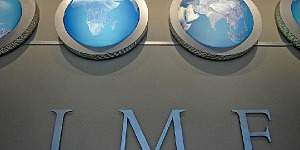Moody's Investors Service ("Moody's") has today downgraded the long-term foreign and local currency issuer ratings of the Government of Mali to Caa2 from Caa1 and placed the ratings on review for further downgrade.
The downgrade is prompted by missed payments since 28 January on commercial debt obligations issued by the Government of Mali on the West African Economic and Monetary Union (WAEMU) debt capital market. This is due to the imposition of economic and financial sanctions by the Economic Community of West African States (ECOWAS) and WAEMU on the Government of Mali in early January 2022. The sanctions follow the military-led government's proposal to extend its military rule to five years despite previous commitments to hold elections by February 2022. Moody's associates the Malian government's proposal with weaker governance and in particular an erosion in the quality of the country's legislative and executive institutions, from already weak levels. As long as the government's accounts at the regional central bank, the Central Bank of West African States (BCEAO), remain frozen due to sanctions, it will likely continue to miss payments on outstanding commercial debt obligations.
The decision to place the ratings on review for further downgrade reflects Moody's view that the current political situation remains fluid and could deteriorate further if the negotiations between Mali's military-led government on the one side and ECOWAS, WAEMU and the international community on the other side, do not quickly reach an agreement regarding a transition for a timely return to civilian rule.
The review period will allow Moody's to monitor the evolution of the relationship between Mali and West Africa's institutions. A rapid reconciliation and lifting of sanctions would pave the way for debt payments to resume, with likely only limited losses incurred by investors. Conversely, in case the sanctions remain in place for an extended period of time, the economic and financial repercussions may lead to more significant losses for investors. Moreover, Mali's economy and population would suffer from protracted sanctions, with potentially significantly negative consequences for the sovereign's longer-term credit standing.
Concurrently, Moody's lowered the long-term local currency (LC) and foreign currency (FC) ceilings to B2 and B3, respectively, from B1 and B2, respectively. The three-notch gap between the LC ceiling and the sovereign rating reflects Moody's assessment of the small footprint of the government in the economy, low risks related to external imbalances due to Mali's membership in the WAEMU; balanced by a very weak institutional framework. The one-notch gap between the FC ceiling and LC ceiling reflects Moody's assessment of limited Transfer & Convertibility (T&C) risks due to the French Treasury guarantee of the peg between the CFA franc and the euro.





































